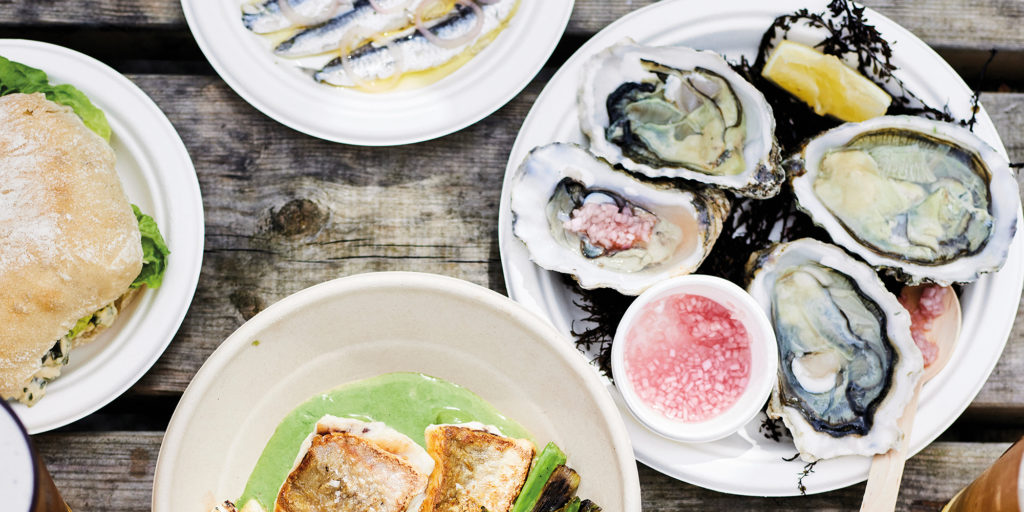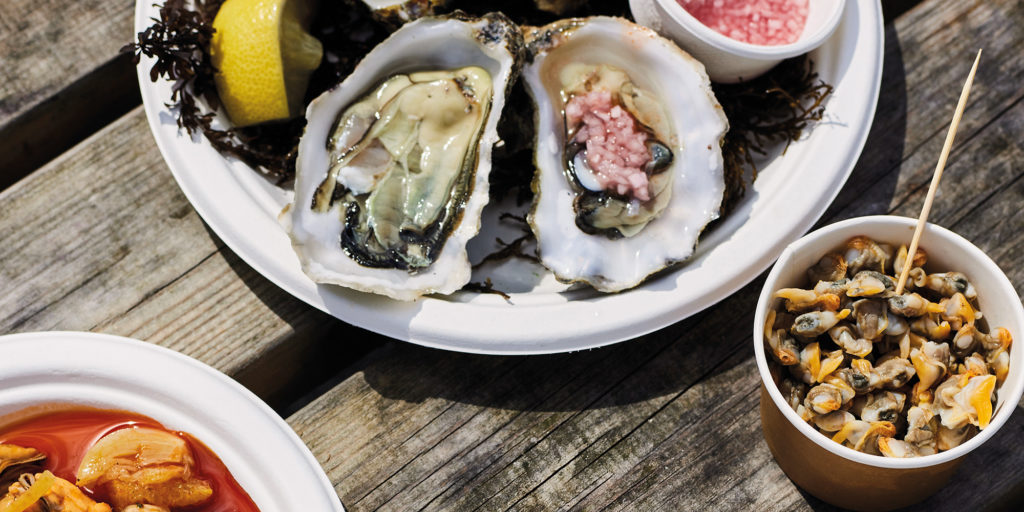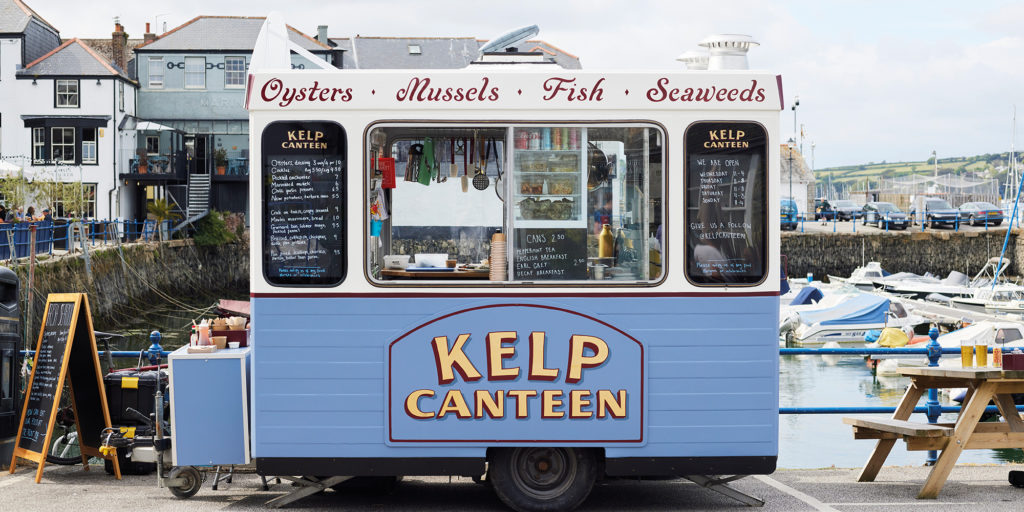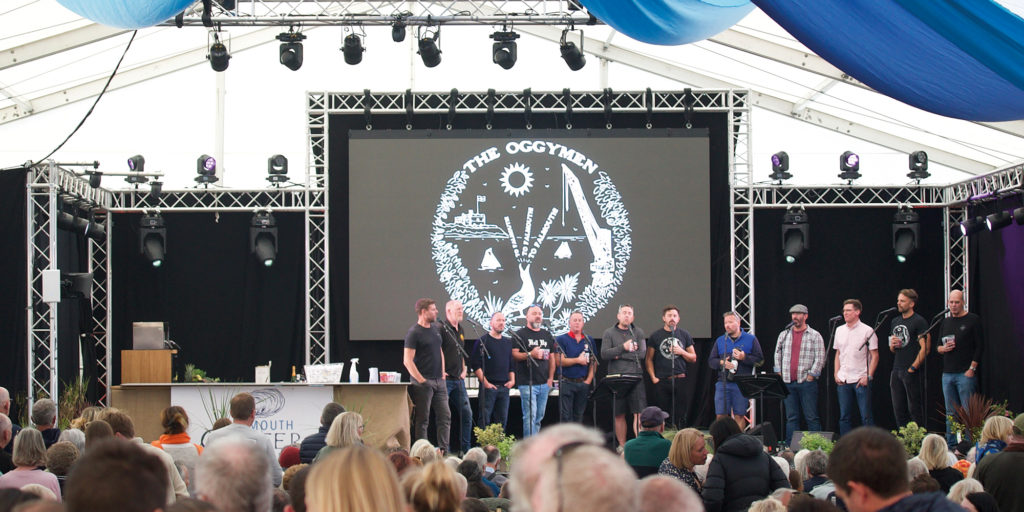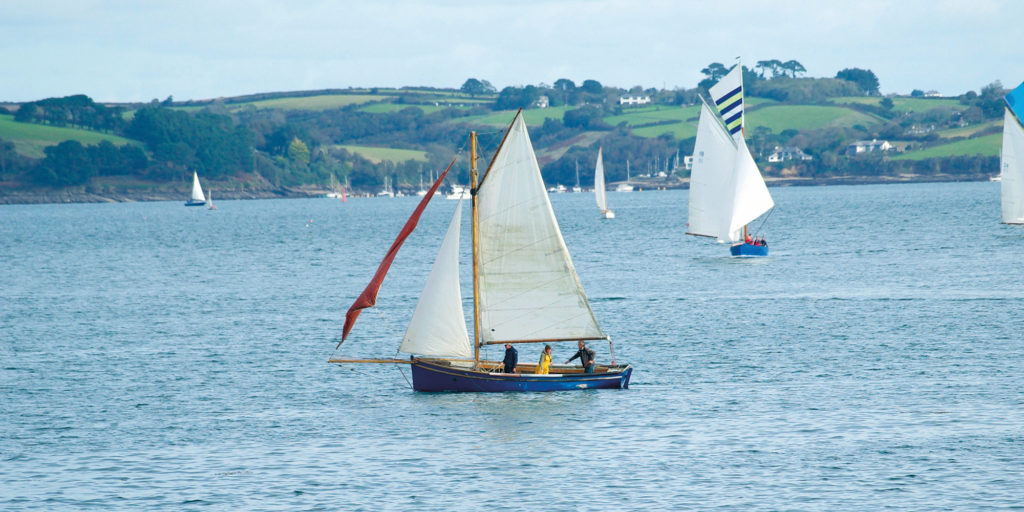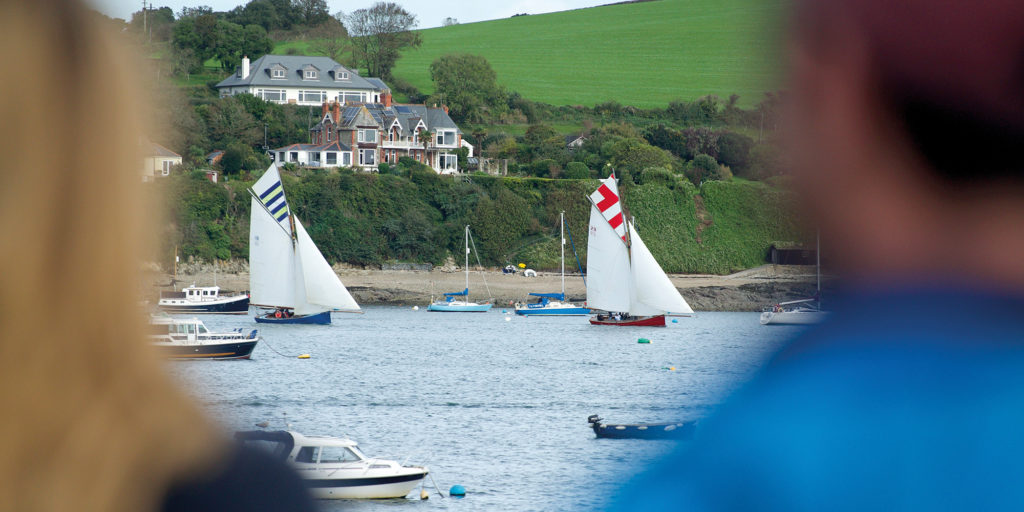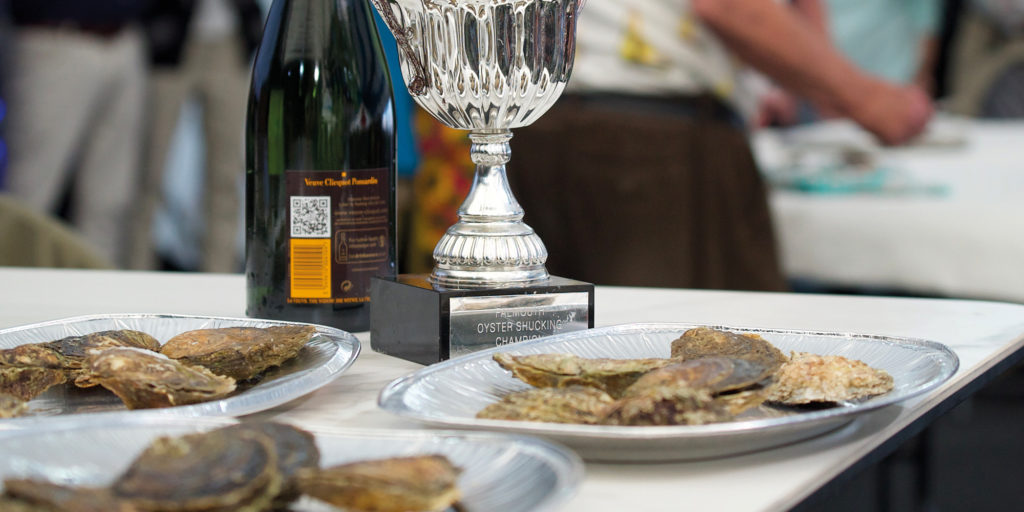

Festival on the Fal
Four days of celebrating the native Fal oyster, brings together live demos, local chefs and music in an event not to be missed.
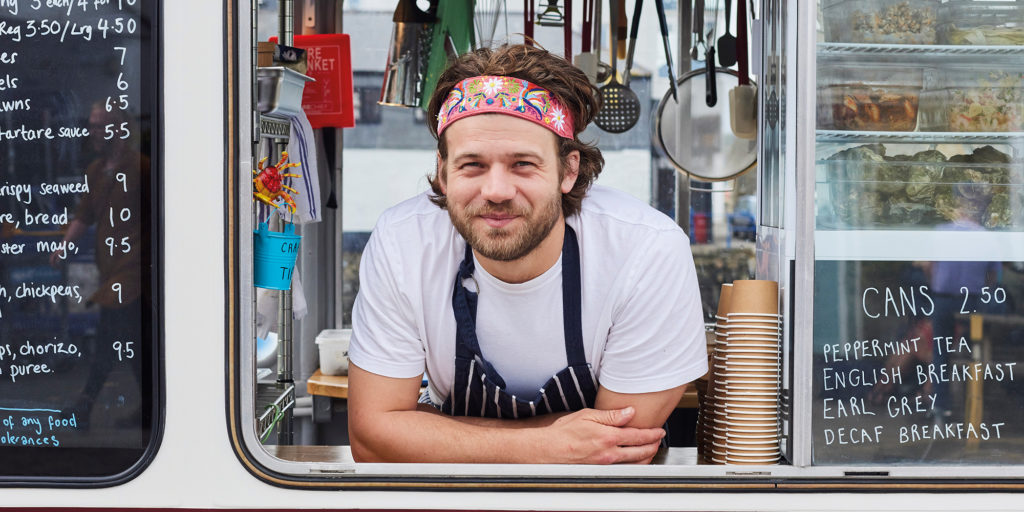
As the calendar flips to October, Falmouth prepares once again for its Oyster Festival, a four-day celebration unlike any other in Britain. It’s an event that puts centuries of salt-soaked tradition centre stage in a way that draws both locals and visitors into the heart of maritime life. This is an invitation to taste, listen and learn, framed by Events Square and, for the first time, the Princess Pavilion. Here, the Fal oyster is the hero of a story woven through sail-powered dredging, skilled chefs and an unmistakable Falmouth atmosphere.
By day, the town buzzes with anticipation as chefs handle knives and share the intricacies of their craft. Among them are names rooted in Cornwall: Ben Palmer of The Sardine Factory, Hylton Espey from Culture, Angus Bell of Restaurant Mine, Finn Johnson at Hevva, Alfie Hazlitt representing INDIDOG, Elliot Kett at Kelp Canteen, Jack Frame of The Beach House, and Annie Seabourne from My Fish Kitchen. Their live demonstrations focus on the Fal oyster, the only one in Europe (and possibly the world) still dredged using sail and oar. Central to the festival are touchstones that draw a crowd year after year: the Working Boat Race and the Oyster Shucking Competition, a performance in dexterity and speed. Yet this year’s addition of masterclasses offers something different: a chance to roll up sleeves, handle fish, tools and techniques under the guidance of those who live this life daily.
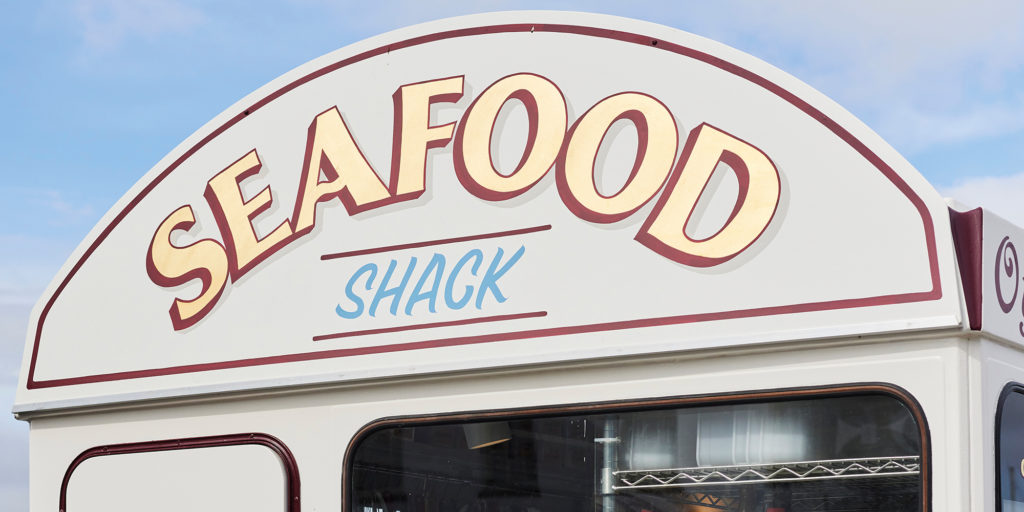
As the afternoon shadows lengthen, music drifts through the air. Free performances give way to evening programmes – ticketed but affordable, with entry from just £11. On stage is a rich mix of voices: award-winning folk singer Seth Lakeman performs at The Princess Pavilion, while the comedic musician Johnny Cowling, the maritime harmonies of The Quartermasters and the high-voltage grooves of the twelve-piece Falmouth Soul Sensation appear at Events Square.
For over a century, Cornish families have derived their livelihood from oyster dredging in the Carrick Roads and surrounding rivers. Many of the oyster boats, known as Falmouth Working Boats were built in boatyards around the Fal, with some of the oldest dating back as far as 1860. 100 years ago, over 130 oyster dredgers worked out of Falmouth and St Mawes and virtually every port in Cornwall had its own fleet. Governed by ancient laws that were put in place to protect the natural ecology of the riverbeds and oyster stock, oystermen fishing in the Port of Truro Oyster Fishery are prohibited from using engines. Instead, sail power and hand-pulled dredges must be used. This is the only oyster fishery in Europe, where such traditional methods remain compulsory. Fishermen navigate by wind, tide, skill and instinct, and only then is the oyster purified, sometimes even returned to the sea to plump up before sale. These details become touchpoints in conversations as chefs demonstrate how to shuck, plate, or pair these oysters with a Cornish twist.
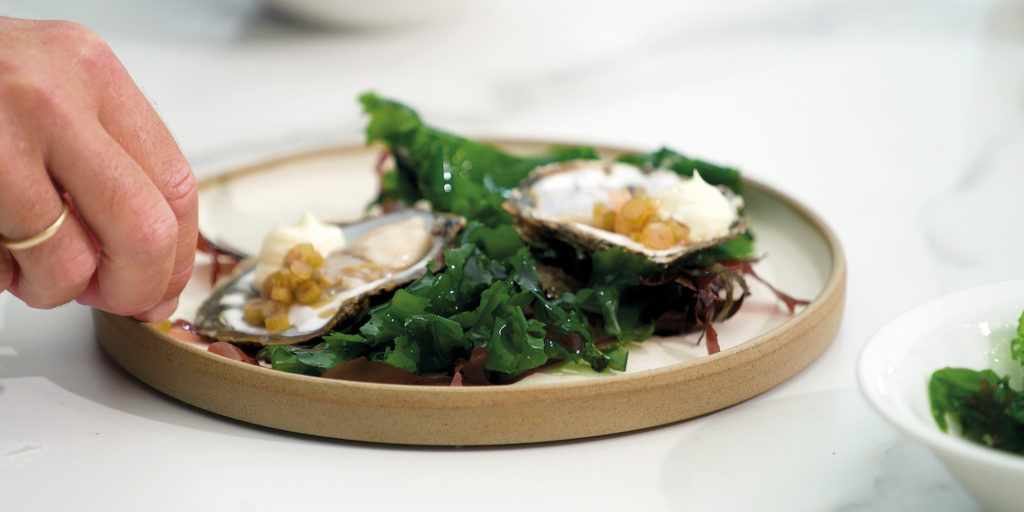
Ahead of the festival, we talk to Elliot Kett, owner and head chef of Kelp Canteen (www.kelpcanteen.com), about his passion for local produce and his vital role in keeping Falmouth’s famous native oysters on local plates. The end of summer has brought a welcome respite for Elliot, who also owns Kelp Canteen food truck. “Things have definitely slowed down a bit now with the end of summer holidays, but it’s actually quite nice not to be rushed off your feet the whole time!”, he tells us as we settle in for a chat about his deeper involvement with Cornwall’s oyster industry. What started as a simple need to source quality oysters for his food truck has evolved into something much more significant. “Last year we were buying oysters from a Cornish wholesaler and then, in November, they announced they were shutting down.” This left local food businesses and fishmongers with a ‘fishy’ problem. Here they were in Falmouth, with one of the world’s most prized oyster beds on its doorstep, yet locals couldn’t access their own native oysters.
Thankfully, Camel Fish acquired an old purification unit in Flushing, and so were able to process the oysters, although their focus was primarily on export. Seeing an opportunity, Elliot and local fishmonger Pysk (www.pysk.co.uk) approached them with a proposal: would they be happy to work in a partnership with them, so that local restaurants and wholesalers could still buy Fal oysters? The answer was yes and the partnership has flourished: “Camel Fish do all the purification and then we distribute and deliver Fal oysters locally,” says Elliot.
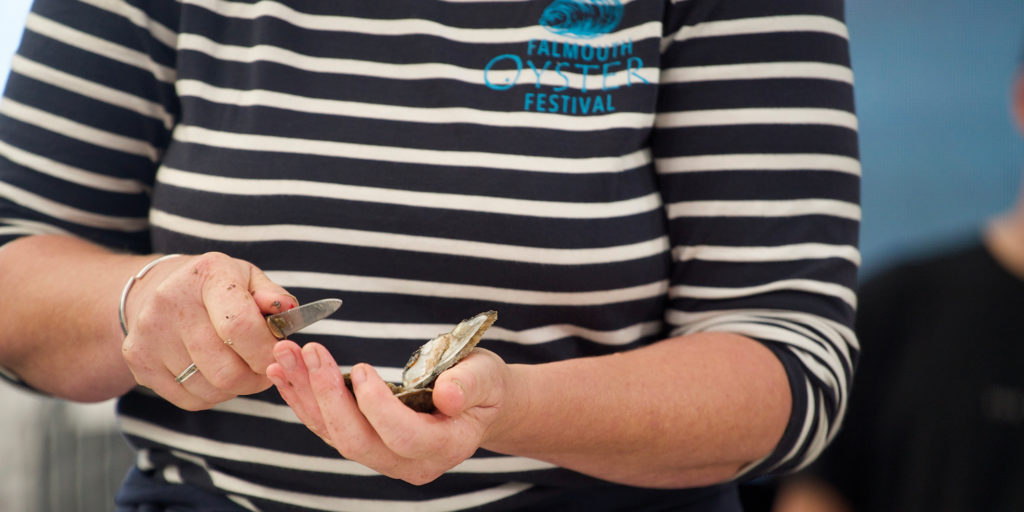
So, what is it that makes Falmouth’s oyster beds so special? Elliot explains: “There are only three commercial native oyster beds left in the UK, and the Falmouth native bed is the only one that hasn’t been overfished. This is down to the way it’s regulated, which is the same way it has been for hundreds of years.” Traditional methods are strictly enforced: “You’re only allowed to fish using sail or oar, you can only dredge during certain times of the year and your dredge can only be a certain size.” For those unfamiliar with native oysters, Elliot is passionate about their distinctive qualities. “You get a more delicate, slightly more minerally and metallic flavour with native oysters, they are a little smaller as well, which makes them sweeter. I recently read a nice analogy of the difference in flavour between a rock and a native oyster. With a rock oyster it’s a bit like eating chicken or beef, while a native oyster is more like eating venison or wild boar, so it’s more interesting on the palate.”
For preparation, Elliot’s preference is clear: “The rock oysters tend to withstand cooking slightly better than the natives, which are smaller and more delicate. I love to prepare and eat them raw. A favourite recipe from the Kelp Canteen truck is to serve them with a roasted quince vinaigrette – the floral, sweet notes of the quince go really well with the metallic notes of the natives.” Kelp Canteen’s wider menu reflects Elliot’s broader philosophy of local, sustainable eating. “We change the menu every week depending on what is landed locally. We’ve always got a few staples and, of course in season, we’ve always got oysters.” Recent offerings have included whole lemon sole out of Newlyn with a caper and seaweed butter; a braised octopus ragu with homemade pasta; and scallops with miso butter and seaweed that they harvest themselves.
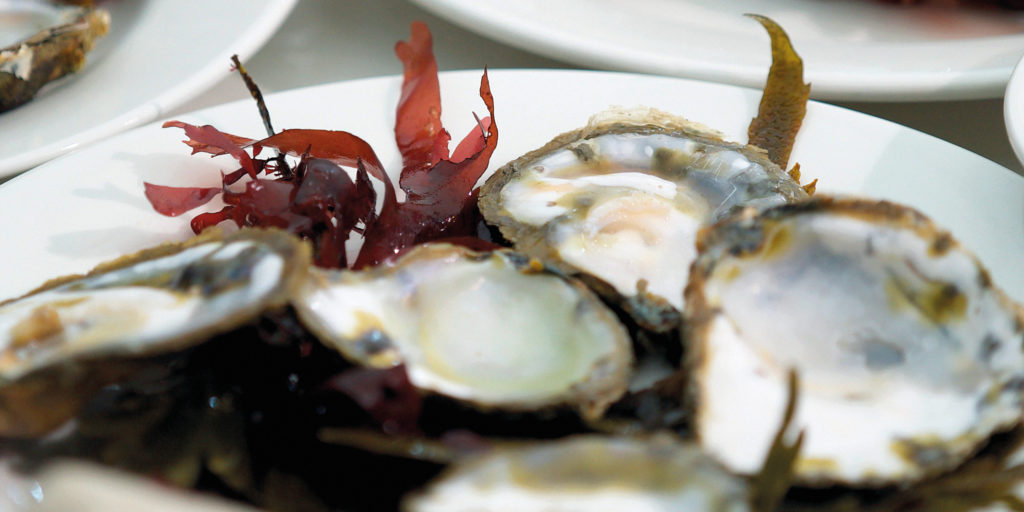
From a simple need to source quality ingredients for his food truck, Elliot has helped preserve a crucial link between Cornwall’s waters and its plates, ensuring that this ancient, sustainable fishery continues to nourish the communities that have depended on it for centuries. As the Fal Oyster Festival approaches, Elliot will be doing a chef demo, as well as chairing a panel discussion about the past, present and future of the oyster beds.
The Fal Oyster Festival, refreshed after a thoughtful pause in 2024, runs from
Thursday 9th to Sunday 12th October, showcasing the best of Cornwall’s maritime heritage, seafood culture and community spirit.
FALMOUTH OYSTER FESTIVAL
www.falmouthoysterfestival.co.uk
